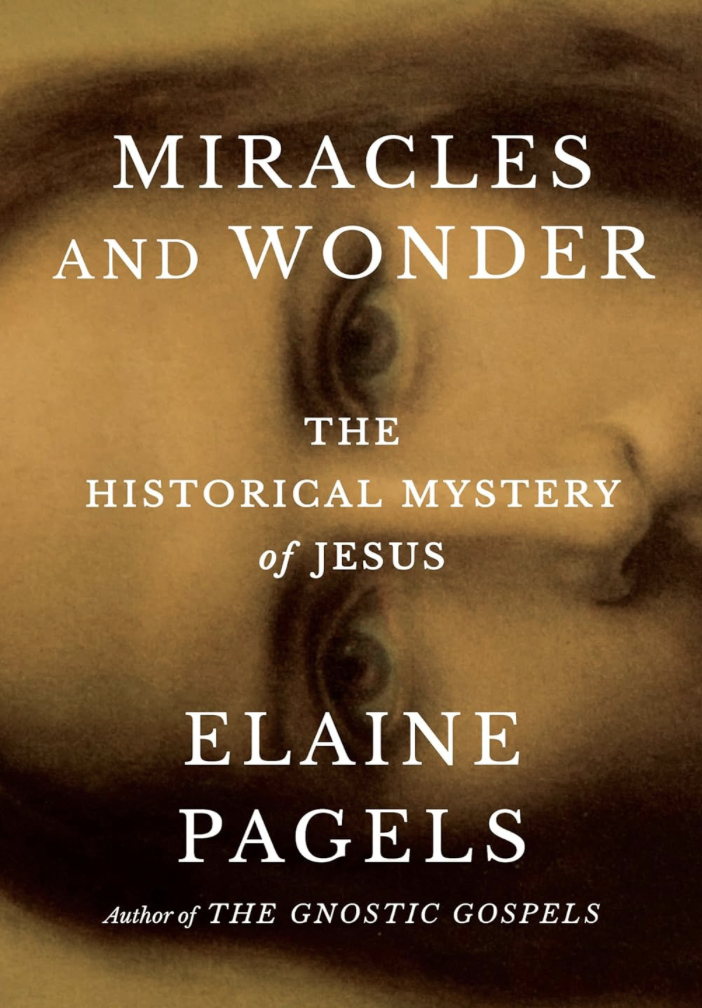The Kingdom of God
This summer my Sunday morning Bible study group has been reading Elaine Pagels’s new book Miracles and Wonder: The Historical Mystery of Jesus. After perusing the table of contents, I volunteered to facilitate our two-part discussion of the third chapter, which is titled “What is the ‘Good News’? How the Message of ‘God’s Kingdom’ Morphs into ‘Jesus is God!’”
I began our first discussion of my assigned chapter by reading a paragraph where Pagels describes her desire to clarify what the “good news” would have meant to the people who heard Jesus preach in Galilee. She observes that the original sources do not provide a single, cohesive narrative. Should we equate the kingdom of God with heaven - a place where believers receive their eternal reward? Is the kingdom of God yet to come - the new heaven and the new earth depicted in John’s Revelation? Did Jesus already usher this kingdom into the world, inaugurating a society where the last become first and the marginalized are centered? Is the kingdom of God best understood as an internal reality?
During the Journey Class’s first discussion of this chapter, I distributed handouts that included verses from the Gospel of Mark where Jesus speaks directly about the kingdom of God. Since most biblical scholars believe Mark is the oldest of the four canonical gospels, this seemed to me to be a good way to refresh our memories as we considered how Jesus’ original audience might have interpreted his words.
After volunteers finished reading the verses aloud, I asked the class, “So what do Jesus’ words, as recorded in the Gospel of Mark, tell us about the kingdom of God?” “Everything and nothing!” one woman exclaimed, provoking an outburst of laughter.
In the Gospel of Mark, Jesus declares that the kingdom of God has come near (1:15) and is coming soon (9:1). Jesus tells his disciples that the secret of the kingdom of God has been given to them (4:10-12). He describes this kingdom using parables (4:26-32). He warns his disciples the rich will have trouble entering God’s kingdom (10:25), while children will have easy access (10:15).
After our review of these passages, I invited folks to share what they had been taught about the kingdom of God when they were young. For the majority of class members, the kingdom of God had been equated with heaven - the place where you were headed to spend eternity if you said the right prayer.
When I was a teenager, my youth group regularly sang a chorus about the kingdom of God when we gathered on Wednesday nights, a song based on Jesus’ words in Matthew 6:33 - “Seek ye first the kingdom of God, and his righteousness, and all these things shall be added unto you. Allelu, alleluia.” I absolutely loved that chorus.
How did I interpret those words in that spiritually formative season of my life? If you had asked my 16-year-old self to explain what it meant to seek first the kingdom of God, I imagine I would have said you should have a daily quiet time.
When the Journey Class gathered the following Sunday for our second discussion of the chapter, we once again began by reviewing Scripture. This time my list of verses where Jesus mentions the kingdom of God included selections from all four canonical gospels.
After volunteers read the passages aloud, I distributed index cards and invited folks to complete this sentence: “The kingdom of God is ___________________.” I collected the cards and read each one aloud, ensuring that every voice would be heard. Here are a few of the responses:
“The kingdom of God is a dream for reality.”
“The kingdom of God is in each one of us. It has been created by God in us, like the light of the world, but each one must bring that light to reality.”
“The kingdom of God lives within each of us. Micah 6:8 describes God’s kingdom by requiring that we do justice, love mercy, walk humbly with your God.”
“The kingdom of God is within us and is intended to be put into practice here on earth during our lifetimes.”
“The kingdom of God is mysteriously both internal and external.”
“The kingdom of God is a community of believers who translate faith into action.”
After reflecting on the compiled wisdom of the class, we shifted to the “So what?” discussion. What are the implications of your definition of the kingdom of God? If you believe the kingdom of a God is a dream for reality, then what role do you play in making that dream a reality? If you believe the kingdom of God is intended to be put into practice here on earth during your lifetime, then what does that look like in practical terms? How will you translate your faith into action?
My understanding of the kingdom of God compels me to feed the hungry, welcome the stranger, clothe the naked, visit the sick, and serve the imprisoned (Matthew 25:35-36). My desire to seek first God’s kingdom prompts me to prioritize spending time with and learning from those who are marginalized. My belief that the kingdom of God is within me leads me to devote time to spiritual practices that strengthen my connection to God and my neighbors.
If you had been with us during our discussion of the kingdom of God, what would have written on your index card? I invite you to finish this sentence: “The kingdom of God is . . .” Now answer this question: “So what?”

